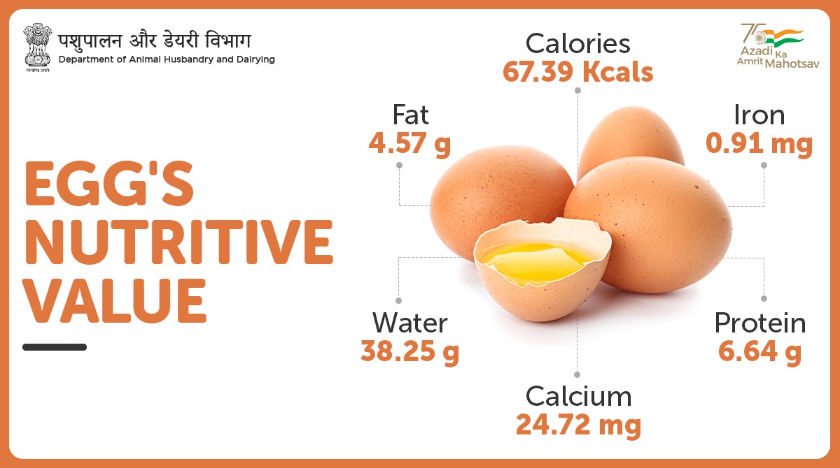How Many Calories Are in Four Eggs: Exploring the Nutritional Content
Eggs are a popular food choice for many people due to their versatility and nutritional value. They are packed with essential nutrients and can be prepared in various ways to suit different tastes. One common question that arises is, "How many calories are in four eggs?" In this article, we will delve into the caloric content of four eggs and explore their overall nutritional benefits.

Understanding The Nutrients And Calories In An Egg
1. Understanding Caloric Content
Calories are a measure of energy present in food. They provide fuel for our bodies to carry out essential functions.
The number of calories in a particular food item can vary based on its macronutrient composition.
In the case of eggs, their caloric content primarily stems from fats and proteins, with a negligible amount coming from carbohydrates.
2. Caloric Breakdown of Eggs
A typical large-sized egg, weighing around 50 grams, contains approximately 72 calories.
This caloric value can fluctuate slightly depending on the egg's size and the diet of the chicken that laid it.
Since we are focusing on four eggs, the total caloric intake would amount to approximately 288 calories.

Calories in 4 medium-boiled eggs and nutrition facts
3. Nutritional Profile of Four Eggs
Apart from calories, eggs offer an array of essential nutrients that contribute to a healthy diet. Let's explore the nutritional profile of four eggs:
3.1. Protein: Eggs are an excellent source of high-quality protein.
Four large eggs provide around 24 grams of protein, making them a valuable option for individuals following a protein-rich diet.
Protein is crucial for tissue repair, muscle growth, and overall body maintenance.
3.2. Fat: While eggs contain a moderate amount of fat, the majority is healthy unsaturated fat.
Four eggs contain approximately 20 grams of fat, with most of it being monounsaturated and polyunsaturated fats.
These fats are beneficial for heart health and play a role in absorbing fat-soluble vitamins.
3.3. Cholesterol: Eggs have been a topic of debate when it comes to cholesterol intake.
However, current research suggests that the cholesterol found in eggs does not significantly impact blood cholesterol levels for the majority of people.
Four eggs contain around 800 milligrams of cholesterol, which can be accommodated in a healthy diet for most individuals.
3.4. Vitamins and Minerals: Eggs are a rich source of various vitamins and minerals.
They contain vitamin A, vitamin B12, vitamin D, vitamin E, and vitamin K, along with minerals like iron, calcium, and selenium.
These nutrients play vital roles in maintaining overall health, supporting immune function, and promoting good vision.

Egg Nutrition
4. Benefits of Including Eggs in Your Diet
Incorporating eggs into your diet can offer several benefits:
4.1. Weight Management: Eggs are known for their high satiety value, meaning they keep you feeling full for longer. This can help with weight management and prevent overeating.
4.2. Muscle Building and Repair: The protein content in eggs supports muscle building and repair, making them an ideal choice for athletes and those engaged in regular physical activity.
4.3. Eye Health: Eggs contain nutrients like lutein and zeaxanthin, which are beneficial for eye health and may reduce the risk of age-related macular degeneration.
4.4. Brain Development: Choline, an essential nutrient found in eggs, is crucial for brain development and function. It plays a role in memory, cognition, and neurological processes.

Benefits of Eating Eggs for Breakfast
Four eggs provide approximately 288 calories and offer a range of essential nutrients.
They are an excellent source of protein, healthy fats, vitamins, and minerals. Including eggs in your diet can contribute to weight management, muscle building, eye health, and brain development.
Remember to consider your overall dietary needs and consult with a healthcare professional or nutritionist for personalized guidance.